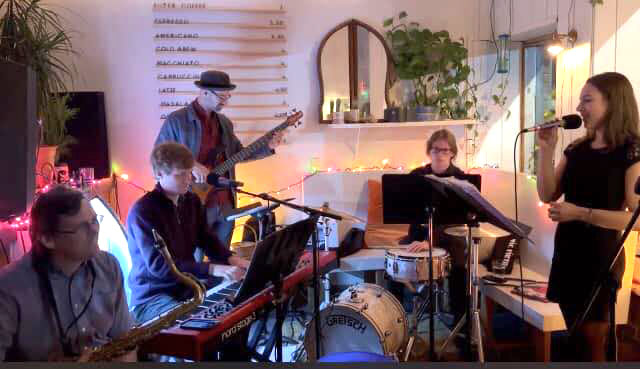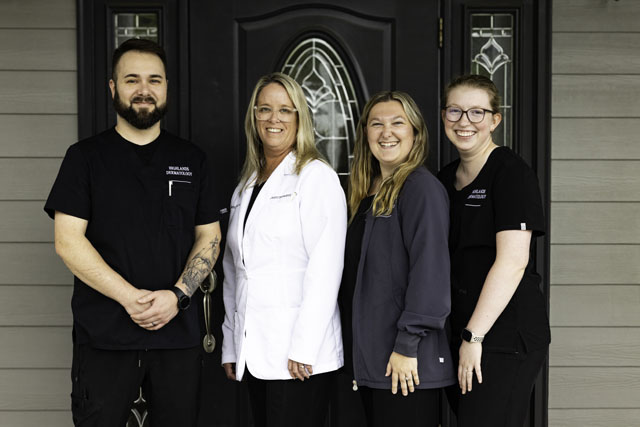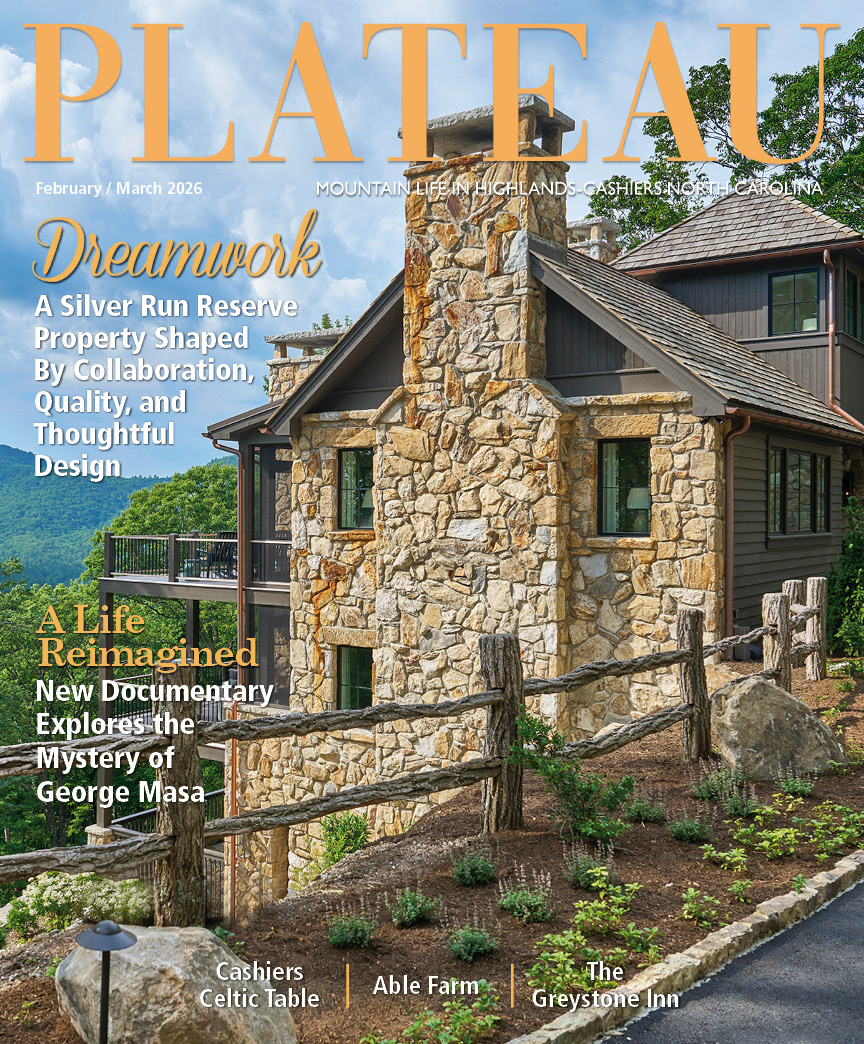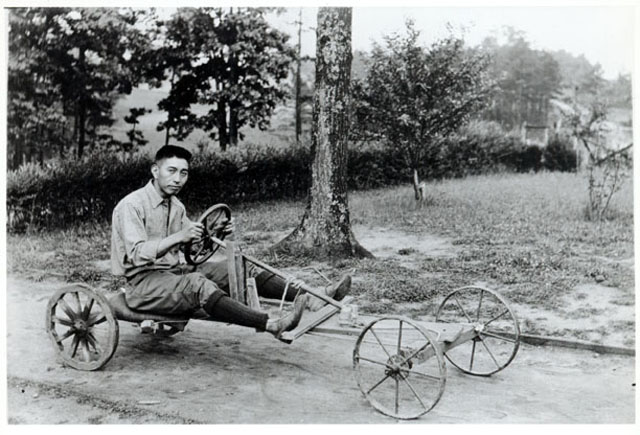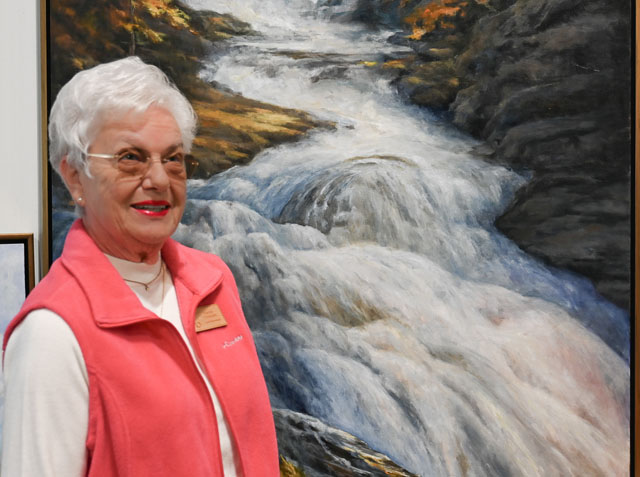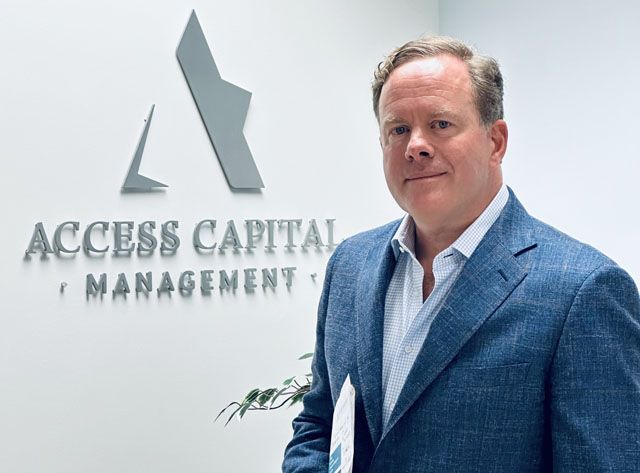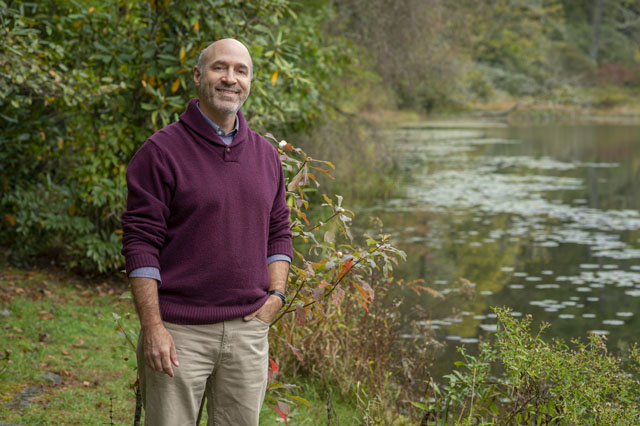Pisgah Legal Services
04 Jun 2024
Championing the underserved
By F.B. Robinson Photos by F.B. Robinson
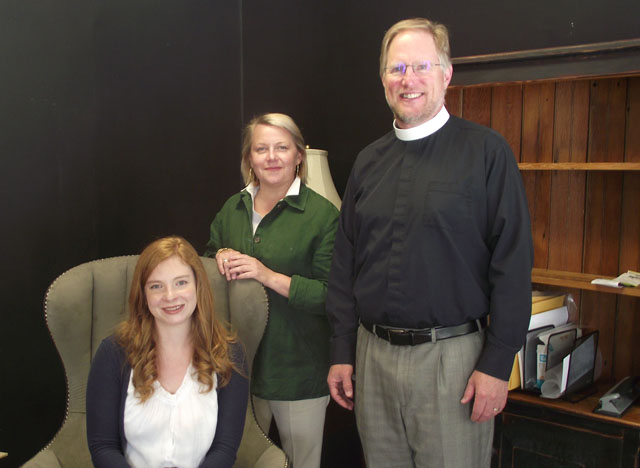
Near the middle of April, as the trees were taking on their soft green foliage and wildflowers pushed through the forest floor, I visited the Cashiers office of nonprofit Pisgah Legal Services. It is a small, unassuming space that belies the important work that takes place there. I had the good fortune to be able to sit down with attorney Patricia Caddell, the Reverend Rob Wood of the Church of the Good Shepherd, and Pisgah Legal’s fund-raising specialist for Jackson, Macon and Haywood counties, Leslie Manning. During our discussion, I learned not only of the interwoven bond between the pro bono legal service and The Episcopal Church of the Good Shepherd but also their mutual passion for the underserved people of the plateau region.
The history
Pisgah Legal began in 1978 in Buncombe County, and though it now serves 18 counties in western North Carolina, there was only a limited presence in Jackson and Macon counties until a group of parishioners from The Church of the Good Shepherd recognized the need for comprehensive legal services after partnering with Pisgah Legal to respond to a series of ICE raids in 2017-2018. The church and Pisgah Legal’s Executive Director, Jim Barrett, held a meeting to determine how best to establish a toehold in the area. The Church of the Good Shepherd offered Pisgah Legal part-time office space and money from the outreach grants program they use for well-meaning partners in the area. The relationship continued to grow and one of the parishioners, attorney Perrin Dargan, became a member of the board of directors of Pisgah Legal. In partnership with many other generous individuals and foundations in Highlands, namely a large gift from the Highlands Cashiers Health Foundation, the church helped build enough community support for Pisgah Legal to establish its first office at the Highlands-Cashiers Hospital. The Church of the Good Shepherd continues to provide a yearly grant and now, office space in Cashiers.
The first office proved to be less accessible and provided lower visibility than the organization had hoped. In 2023, The Church of the Good Shepherd purchased the 10,000-square-foot building that now houses the Bazaar Barn on Highway 107 North. With this purchase, they offered Pisgah Legal permanent office space within the building at no cost. Additionally, a Highlands office has opened in the Peggy Crosby Center, a hub for many area nonprofits due to its highly affordable rent.
The work
From their office on Highway 107 North, Pisgah Legal handles cases from primarily four categories: housing, domestic violence (safety), health care, and income. Attorney Patricia Caddell staffs the office with assistance from attorney Jaclyn Helton. Patricia is a multi-generational Cashiers native who takes pride and pleasure from being able to serve the disadvantaged people of her community. Often, her first contact with a potential client occurs over the phone. There is an assessment process to determine if the client’s situation falls within the scope of Pisgah Legal’s services and if the low-income client is eligible for said services. Pisgah Legal does not handle criminal matters nor is there ever a charge for their representation. The average income of a Pisgah Legal client who receives free legal aid is $18,076 a year.
Once the client relationship is established, attorney Patricia Caddell was quick to tell me that Pisgah Legal uses a comprehensive approach in their service. When asked for a further explanation, she replied “There is almost never a situation when a client calls me with only one issue where we can help.” She may get an inquiry from someone seeking help with a domestic violence situation. After further conversation, it may become apparent that this client also needs help accessing health care, has food insecurity or may be facing a myriad of other problems for which Pisgah Legal can assist.
Housing is one of the common concerns for Pisgah Legal’s clientele. These issues can range from untenable living conditions (i.e., no heat or potable water, lack of repairs that result in dangerous living conditions) to imminent eviction. As many of her clients rent monthly, attorney Caddell said the prospect of eviction must be addressed. After the paperwork is filed by the landlord, it might be as little as three weeks before her client is homeless. Attorney Caddell said that sometimes the issue is as simple as a misunderstanding due to a language barrier.
Many of Pisgah Legal’s clients are unaware of the resources available to them, and the prospect of a court appearance is daunting. This is doubly so if English is not their primary language. Pisgah Legal offers their services in both English and Spanish and can access interpretation services for other languages if needed.
One of the many success stories
A recent case handled by attorney Patricia Caddell (also featured on Pisgah Legal’s website) was that of a grandmother (Sherry) who took in her three grandchildren after her daughter’s death. With the father unnamed, Sherry found herself solely responsible for the welfare of her grandchildren. Though the children had lived with Sherry for three years, in the eyes of the court, she was not their legal guardian. On health care matters, she had been able to get by with a notarized letter, her daughter had provided before her death. However, when one of her grandchildren needed major surgery for a congenital condition that had become both painful and dangerous, the surgeons refused to grant Sherry’s request for the surgery. Having no idea how to navigate both the legal and medical labyrinths, Sherry turned to Pisgah Legal. Caddell moved quickly and filed a petition for guardianship. On the day of her hearing, Sherry’s powerful testimony nearly brought the courtroom to tears and she was granted guardianship of her grandchildren. Her 14-year-old grandson was then scheduled for surgery. This is just one of the many success stories of Pisgah Legal doing its part to help the disadvantaged throughout western North Carolina.
Jackson and Macon counties’ populations are a contrasting mix of opulence and need. In Jackson County, 18.6% of children live in poverty and 17.4% of the residents are uninsured. In Macon County, 14.4% of the residents are food insecure and 48% spend more than 30% of their income on housing.
Making a difference
- Pisgah Legal in 2023
- 932 people in Macon and Jackson counties were helped by Pisgah Legal. 373 of these people were children
- 483 people were helped to escape domestic abuse and rebuild their lives
- 31 people were helped to increase their access to healthcare through access to the Affordable Care Act
- 76 people were helped to improve their basic income
- Pisgah Legal receives their funding through community grants, like those provided by The Church of the Good Shepherd, by individual donations, and with some funding from the federal government and charitable foundations.
To find out more about Pisgah Legal Services, please visit their website at pisgahlegal.org. If you would like to donate or volunteer, please visit their website, or contact Leslie Manning at leslie@pisgahlegal.org.
Pisgah Legal Services Cashiers Office:
1846 Hwy 107 N
Cashiers, NC 28717
828 253 0406

